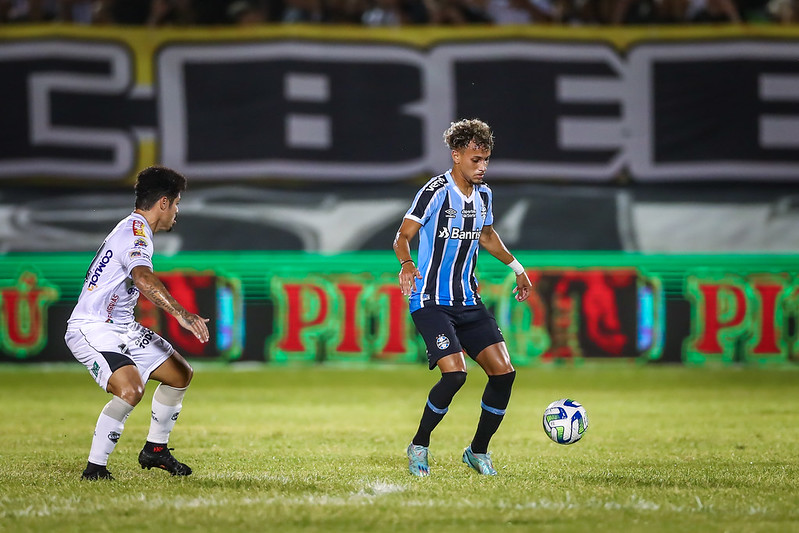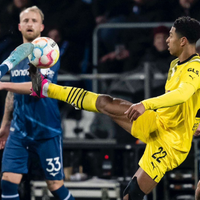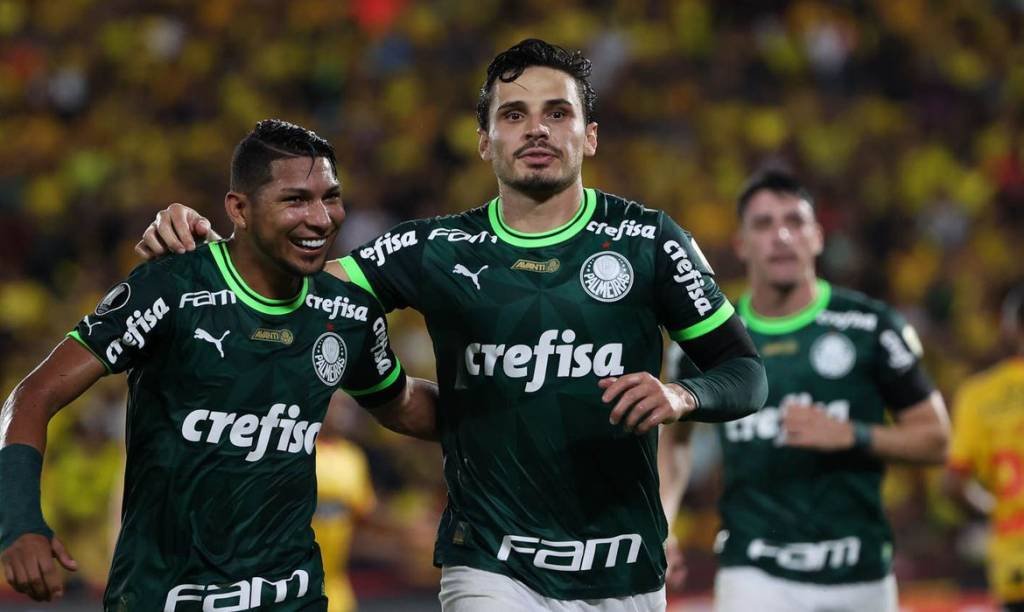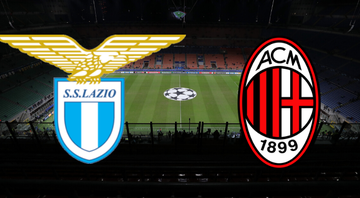

real madrid x atlético de madrid
Real Madrid vs Atlético de Madrid: A Rivalry for the Ages
Por um escritor misterioso
Atualizada- dezembro. 30, 2024
The intense rivalry between Real Madrid and Atlético de Madrid is one of the most heated in all of football. From epic battles on the pitch to off-field drama, this article explores the history and significance of this fierce clash between two titans of Spanish football.

Real Madrid and Atlético de Madrid, two of the biggest clubs in Spain, have been engaged in a bitter rivalry that spans over a century. Matches between these two teams are always highly anticipated and never fail to deliver high-intensity action.
The roots of this rivalry can be traced back to the early years of Spanish football. Real Madrid, founded in 1902, quickly established themselves as one of the dominant forces in Spanish football. Meanwhile, Atlético de Madrid, founded in 1903, emerged as a formidable challenger to Real's supremacy.
Over the years, both clubs have enjoyed periods of success and dominance. Real Madrid has won numerous domestic titles and an impressive number of European trophies, establishing themselves as one of the most successful clubs in history. Atlético de Madrid has also had its fair share of achievements, including multiple league titles and several deep runs in European competitions.
One defining moment in this rivalry came during the final match of the UEFA Champions League in 2014. It was a historic encounter as both teams from Madrid faced each other for European glory at Lisbon's Estadio da Luz. The match ended with a dramatic comeback from Real Madrid, who equalized late into stoppage time before going on to win 4-1 after extra time.
This victory not only solidified Real Madrid's status as Europe's top club but also left a lasting impact on their cross-town rivals. The defeat was particularly painful for Atlético de Madrid since they were just seconds away from winning their first-ever Champions League title.
Beyond the on-pitch battles, this rivalry has seen its fair share of off-field drama as well. The transfer of players between the two clubs has often fueled tensions. Notable examples include the controversial move of Fernando Torres from Atlético de Madrid to Real Madrid in 2007, and the subsequent return of Torres to his boyhood club in 2015.
The rivalry also extends beyond footballing matters. The identity of both clubs reflects the different social and cultural backgrounds of their respective neighborhoods in Madrid. Real Madrid is associated with aristocracy and wealth, while Atlético de Madrid represents the working-class population. This contrast adds an extra layer of significance to every encounter between these two teams.
Matches between Real Madrid and Atlético de Madrid are always fiercely contested affairs, characterized by passion, determination, and a will to win at all costs. Players give their all on the pitch, knowing that victory not only means bragging rights but also a significant psychological advantage over their rivals.
The supporters play a vital role in fueling this rivalry as well. The Santiago Bernabeu Stadium, home to Real Madrid, and the Wanda Metropolitano Stadium, home to Atlético de Madrid, turn into cauldrons of noise whenever these teams meet. The atmosphere is electric, creating an unforgettable experience for both players and fans alike.
In recent years, this rivalry has intensified even further due to competition for domestic titles. Barcelona's dominance in Spanish football was challenged by both Real Madrid and Atlético de Madrid during different seasons. The three-way battle for supremacy added another layer of excitement to an already intense rivalry.
As we look ahead to future encounters between these two giants of Spanish football, it is clear that this historic rivalry shows no signs of slowing down. Both clubs have strong squads filled with talented players who are capable of producing moments of magic on any given day.
Real Madrid vs Atlético de Madrid is more than just a football match. It represents the clash of two ideologies, the meeting of two distinct cultures, and the embodiment of the competitive spirit that drives both clubs forward. This rivalry is not only a spectacle for football fans but also a testament to the rich history and passion that surrounds the beautiful game.




Real Madrid x Rayo Vallecano – onde assistir ao vivo, horário e escalações – La Liga
Real Madrid and Atlético de Madrid, two of the biggest clubs in Spain, have been engaged in a bitter rivalry that spans over a century. Matches between these two teams are always highly anticipated and never fail to deliver high-intensity action.
The roots of this rivalry can be traced back to the early years of Spanish football. Real Madrid, founded in 1902, quickly established themselves as one of the dominant forces in Spanish football. Meanwhile, Atlético de Madrid, founded in 1903, emerged as a formidable challenger to Real's supremacy.
Over the years, both clubs have enjoyed periods of success and dominance. Real Madrid has won numerous domestic titles and an impressive number of European trophies, establishing themselves as one of the most successful clubs in history. Atlético de Madrid has also had its fair share of achievements, including multiple league titles and several deep runs in European competitions.
One defining moment in this rivalry came during the final match of the UEFA Champions League in 2014. It was a historic encounter as both teams from Madrid faced each other for European glory at Lisbon's Estadio da Luz. The match ended with a dramatic comeback from Real Madrid, who equalized late into stoppage time before going on to win 4-1 after extra time.
This victory not only solidified Real Madrid's status as Europe's top club but also left a lasting impact on their cross-town rivals. The defeat was particularly painful for Atlético de Madrid since they were just seconds away from winning their first-ever Champions League title.
Beyond the on-pitch battles, this rivalry has seen its fair share of off-field drama as well. The transfer of players between the two clubs has often fueled tensions. Notable examples include the controversial move of Fernando Torres from Atlético de Madrid to Real Madrid in 2007, and the subsequent return of Torres to his boyhood club in 2015.
The rivalry also extends beyond footballing matters. The identity of both clubs reflects the different social and cultural backgrounds of their respective neighborhoods in Madrid. Real Madrid is associated with aristocracy and wealth, while Atlético de Madrid represents the working-class population. This contrast adds an extra layer of significance to every encounter between these two teams.
Matches between Real Madrid and Atlético de Madrid are always fiercely contested affairs, characterized by passion, determination, and a will to win at all costs. Players give their all on the pitch, knowing that victory not only means bragging rights but also a significant psychological advantage over their rivals.
The supporters play a vital role in fueling this rivalry as well. The Santiago Bernabeu Stadium, home to Real Madrid, and the Wanda Metropolitano Stadium, home to Atlético de Madrid, turn into cauldrons of noise whenever these teams meet. The atmosphere is electric, creating an unforgettable experience for both players and fans alike.
In recent years, this rivalry has intensified even further due to competition for domestic titles. Barcelona's dominance in Spanish football was challenged by both Real Madrid and Atlético de Madrid during different seasons. The three-way battle for supremacy added another layer of excitement to an already intense rivalry.
As we look ahead to future encounters between these two giants of Spanish football, it is clear that this historic rivalry shows no signs of slowing down. Both clubs have strong squads filled with talented players who are capable of producing moments of magic on any given day.
Real Madrid vs Atlético de Madrid is more than just a football match. It represents the clash of two ideologies, the meeting of two distinct cultures, and the embodiment of the competitive spirit that drives both clubs forward. This rivalry is not only a spectacle for football fans but also a testament to the rich history and passion that surrounds the beautiful game.

Napoli x Lazio: onde assistir ao vivo e o horário do jogo hoje (03/03) pelo Campeonato Italiano, Futebol

Palmeiras x Goiás: onde assistir, horário e escalações do jogo



:quality(80)/cloudfront-us-east-1.images.arcpublishing.com/estadao/7CROP5CIJZEMFHH4DYAAGI4EIU.jpg)